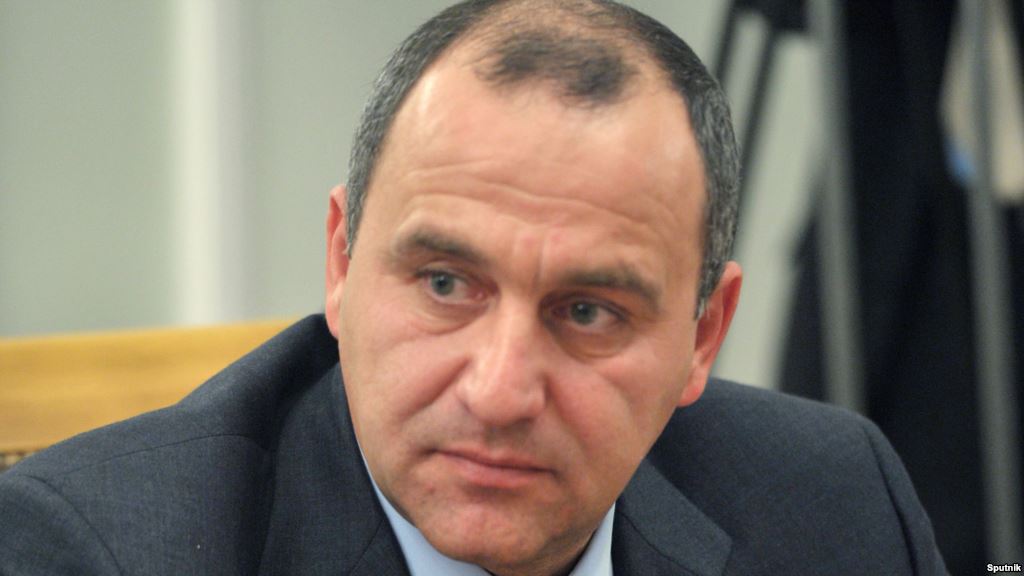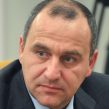
Karachaevo-Cherkessian Activists Demand Direct Election of Governor
Publication: Eurasia Daily Monitor Volume: 13 Issue: 37
By:

Rashid Temrezov’s first term as governor of Karachaevo-Cherkessia, ends on March 1. One week before the expiration of Temrezov’s term, it is still unclear who will be the republic’s next head. The Kavkaz Today website even prematurely announced that Temrezov would stay in power, but later removed the item it had posted to that effect (Kavkaz Today [cached], February 15). As a rule, regional governors formally resign from their positions to be appointed by the Russian president as acting governors and later confirmed by the regional parliaments. Since Temrezov has not resigned, Karachaevo-Cherkessia is rife with rumors about who might replace him. The Russian Communist Party leader in the republic, Eduard Marshankulov, told the Svobodnaya Pressa news agency that, according to his information, Temrezov was not able to secure a second term as governor, but eventually reached a compromise, according to which Moscow will allegedly allow him to remain acting governor until the next Russian parliamentary elections in September 2016, when his future will finally be decided. Also, according to Marshankulov, Karachaevo-Cherkessia’s current interior minister, Kazimir Botashev, is the “substitute” candidate for Temrezov. If Temrezov fails to be reappointed, in order to protect his business interests after his resignation, he will lobby for Botashev’s appointment, Marshankulov said (Svobodnaya Pressa, February 16).
On January 19, President Vladimir Putin received Temrezov in Moscow. The Russian president neither harshly criticized him nor particularly praised his performance. Thus, according to experts, Temrezov’s chances to remain the republic’s governor are 50-50. On the one hand, Karachaevo-Cherkessia has avoided the volatility of neighboring Kabardino-Balkaria and other republics of the North Caucasus where there is a substantial amount of violence. On the other hand, Karachaevo-Cherkessia’s economy has become weaker, with cash injections from Moscow accounting for up to 70 percent of its budget (Kommersant, February 9).
According to some Russian analysts, Moscow’s reason for appointing governors in the North Caucasus is to maintain control of the region during the country’s economic crisis. Since the flow of cash from Moscow to the North Caucasus is drying up, the government will now rely more on raw power and appoint members of the military and the security services to serve as governors in the region (Livejournal.com, February 19). Indeed, members of the Russian military and security services currently rule in Ingushetia, Kabardino-Balkaria and, with some reservations, in Chechnya.
Karachaevo-Cherkessia’s interior minister could be such a candidate. Botashev extensively participated in the Russian-Chechen war, and some observers say he was responsible for the killing of the famous militant from the Middle East, Amir Khattab (Thamir Saleh Abdullah), back in 2002. However, being a relatively quiet republic, Karachaevo-Cherkessia has other options. Ali Uzdenov, one of the top managers of the Sistema financial corporation, is one such candidate. Sistema recently bought a large agricultural business in Karachaevo-Cherkessia and substantially boosted local budget revenues with its tax payments. Ahmat Erkenov, a deputy in the Russian State Duma, is another possible candidate. In the fall of 2015, Erkenov tried to organize an opposition rally in Karachaevo-Cherkessia, but failed, due to obstacles placed by the regional government. The former president of Karachaevo-Cherkessia, Mustafa Batdyev, who apparently remains a politically active figure, is reportedly behind Erkenov’s bid for power (Kommersant, February 9).
The Karachaevo-Cherkessian authorities rejected direct gubernatorial elections, as did all the other republics of the North Caucasus, except for Chechnya. In December 2013, Temrezov signed a law that allows the president of Russia to appoint the republican governor (Regnum, December 2013). Depriving a territory of direct elections for governor is a sign that Moscow wants to have tight control over that territory. Activists in the republic, however, oppose the decision. When the Karachaevo-Cherkessian authorities rejected direct elections, the Russian economy was still doing relatively well, but now the economic crisis is felt by the members of the public. Unsurprisingly, therefore, a group of residents of Karachaevo-Cherkessia went to Moscow, in February, to protest near the Russian State Duma against the republican leadership of the republic. About a hundred protesters accused the republican government of corruption and demanded changes. The primary demand of the protesters, who included members of the Communist Party, was to return to direct gubernatorial elections in Karachaevo-Cherkessia. It is interesting that the police tolerated the protesters, with the exception of those who were especially active (Kommersant, February 12).
It appears that popular demand for direct gubernatorial elections in the republics of the North Caucasus is set to increase, as the central government’s ability to subsidize the republics declines. Moscow would most certainly like to keep control over the republics as tight as possible; but if the government’s coffers dry up, it may have to become more lenient toward the regions, including the republics of the North Caucasus, than it has been in the past.




